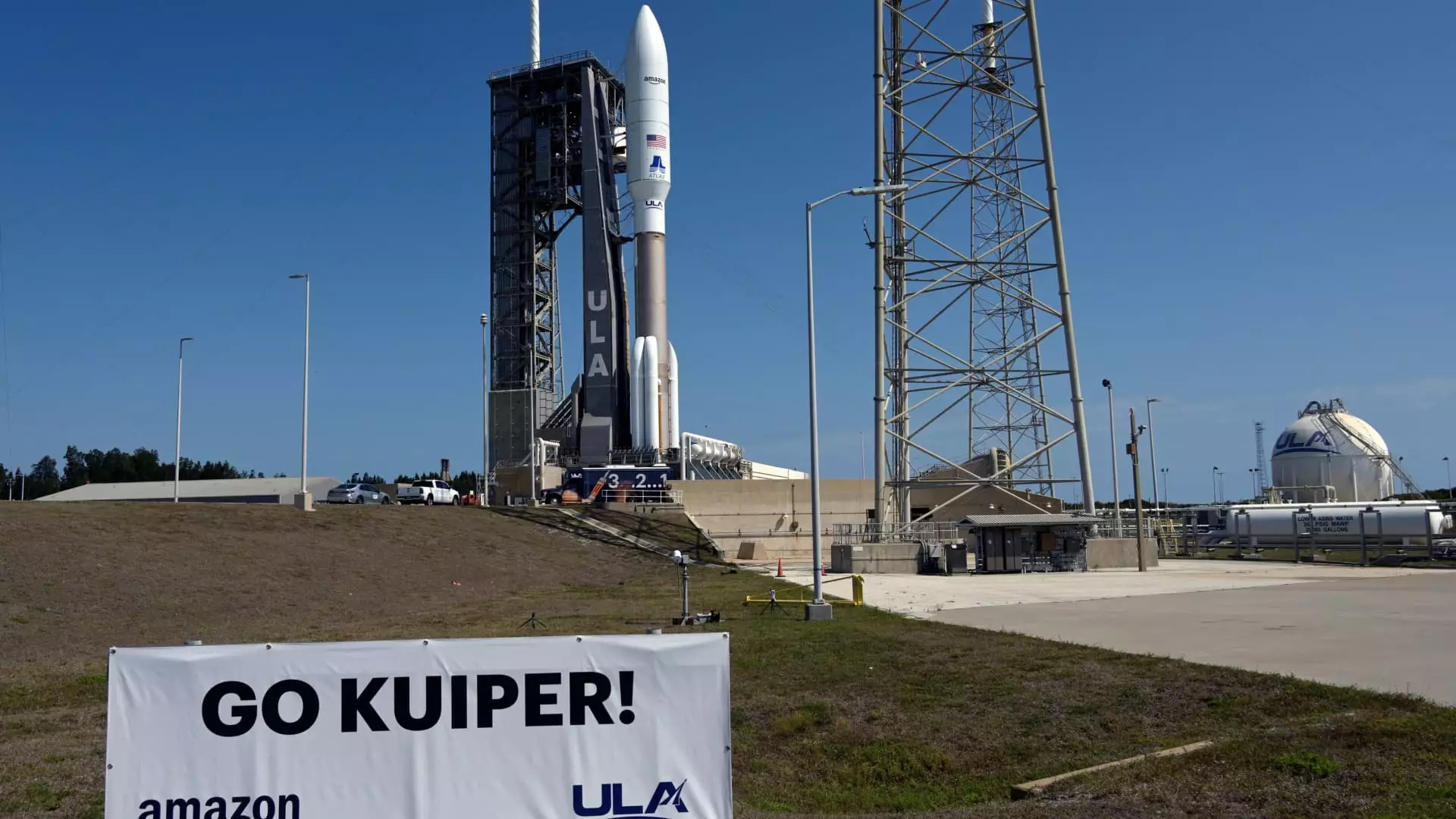The recent delay in United Launch Alliance’s (ULA) attempt to deploy Amazon’s Project Kuiper satellites underscores the fragile, yet ambitious nature of the burgeoning satellite internet industry. Initially scheduled for last Friday, the launch had already faced rescheduling, this time to Monday. Just as hope flickered for the second flight of these satellites aimed at revolutionizing internet access, ULA’s revelation about an elevated purge temperature within the Atlas V rocket’s booster engine sent shockwaves through both the tech and space exploration communities. With just thirty minutes left on the countdown, the disappointment was palpable, marking yet another hurdle in Amazon’s quest for satellite internet supremacy.
The Space Race in a New Era
The stakes surrounding this specific launch cannot be understated. Amazon, which has ambitious plans for Project Kuiper—targeting a 3,000-satellite constellation—finds itself in a fierce battle against established giants like SpaceX’s Starlink, which has taken considerable market share since its inception. The delays not only impede Amazon’s ability to achieve its targets but also reflect the monumental challenges of launching into orbit, an endeavor fraught with uncertainty. ULA’s CEO Tory Bruno candidly remarked on social media about the technical difficulties, emphasizing the unpredictability associated with space launches. It’s fair to consider whether persistent setbacks could tarnish Amazon’s reputation, especially in an industry where reliability is paramount.
More Than Just a Technical Failure
While one could view the prolonged deployment timeline as a mere technical glitch, it serves as a compelling reminder of the stakes involved, revealing the complexities intertwined with technological innovation. Amazon’s Project Kuiper echoes a larger vision: democratizing internet access globally, especially for remote areas where connectivity remains a challenge. Yet, the reality of such aspirations is that they hang by a thread, often susceptible to unexpected failures in engineering or logistics. The broader implication here is that, should these delays accumulate, Amazon may miss crucial regulatory deadlines, especially the pressure to align with the Federal Communications Commission’s mandate to launch 1,618 satellites by July 2026.
The Broader Implications for Industry Dynamics
The ramifications of this delay may extend beyond Amazon and ULA. As the satellite internet landscape grows increasingly crowded, this stalling moment could provide competitors like SpaceX with the upper hand. While Elon Musk’s venture continues to expand its reach and improve its services, ULA’s setbacks accentuate the vulnerability of newcomers attempting to carve out their niche in this dynamic market. In contrast to Amazon’s lofty goals, SpaceX has already proven its tenacity and capacity to efficiently deploy satellites on schedule, creating an uneven playing field that could favor established entities over new players.
The political implications of such a delay should not be underestimated either. With access to the internet regarded as a fundamental right in today’s world, it becomes even more critical that tech behemoths like Amazon navigate their technical challenges swiftly and effectively. In an age where innovation is often equated with progress, ULA’s inability to deliver on its commitments knocks the wind out of Moore’s Law and threatens to stifle the very progress that fuels the digital economy.


Leave a Reply